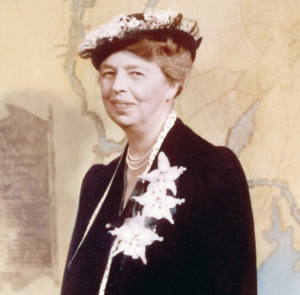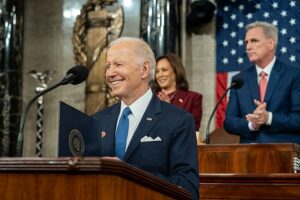The Authority to not Compromise: The New Turkish Constitution

After coup nightly demonstartion of president Erdogan supporters. Istanbul, Turkey, Eastern Europe and Western Asia. 22 July,2016

In December 2016, Turkey’s ruling party, the AKP, together with the ultranationalist MHP party launched a proposal to amend the Turkish constitution. These parties sought to alter the country’s political structure by giving the president executive power over the government—and by limiting the power of parliament.
The call for constitutional reform advanced on the argument that Turkey needs strong and efficient leadership to move beyond a history of stalemated politics, and ironically, to strengthen its democracy. A week before the vote, the Head of the Foreign Relations Department at the Turkish Presidency, Ayşe Sozen Usluer, reiterated this narrative. Future reforms, she said, are contingent on a strong government.
This is a reasonable argument. But there is an obvious paradox in saying that progress and reform justify the removal of checks and balances in Turkey. In reality, the new constitution places several constraints on the country’s political system and gives overwhelming power to a party and president with limited popular support.
During Erdoğan’s campaign to promote these constitutional amendments, the president equated the no-vote with support of terrorism and last summer’s coup attempt. He also depicted the EU as a malevolent “crusader alliance” to strengthen nationalist sentiments and unite the Turkish people against alleged adversaries.
But instead of uniting the citizens of Turkey, these moves deepened domestic polarization and stirred up controversies with the country’s top trading partner.
Although there was strong popular support and positive reforms for Erdoğan and the AKP in the early years, this does not mean that a reform-oriented agenda is still desirable; particularly now that conditions have changed and Erdoğan is gripping tightly onto power.
While it was popular support that gave impetus to the AKP’s early reforms, the recent referendum is clearly a move to invert that relationship. The call for the controversial constitutional amendment promoted reforms as though they are ends in themselves, which require a “strong government” as a means to achieve those ends.
In other words, the amendments strengthen the authority of the government, even if it lacks popular support. The purpose is to enhance the power of the government and facilitate reforms in the interest of the ruling party. This stands in opposition to one of the primary functions of democracy: granting a voice to as many voters as possible.
So how exactly is this “strong government” going to be set up? As is well-known, the amended constitution allows the president to serve as the leader of a political party, appoint judges, and control budgets. Another issue that sparked criticism is the president’s authority to legislate by decree. This change presents a fundamental challenge to the Turkish democracy. Under the new constitution, a president can issue decrees carrying the force of law; the only requirement being that they do not conflict with preexisting laws and the constitution.
While the parliament’s legislative powers will not be abolished with the new amendments, the legislative process is at risk of becoming topsy-turvy with a reactive, rather than proactive, parliament.
The ramifications of this shift in legislative power are as follows: even if the opposition is in majority, it may prove difficult to override Erdoğan’s presidential decrees. To do so, the different parties within the opposition must negotiate to reach the parliamentary majority necessary to counter them.
In other words, under the amended constitution, compromise will be necessary to get something undone, rather than get something done. This favors action over inaction and strong government over weak government—at least in the short term.
But this is not to say that every reform or decree issued by the president will lack public support. Rather, it points to the unsettling fact that this new amendment will make such support increasingly irrelevant. Erdoğan has much more room to affect change by himself.
What does the new constitution mean for Turkey’s relationship with the EU? Many have suggested that the EU should be careful not to push Turkey further away. And, that the EU should work hard to maintain relations with Turkey to protect European interests. The EU is dependent on Turkey to implement its inhumane migration policy, which stops refugees from entering Europe.
With regard to migration, Erdoğan has repeatedly said that Turkey will review its relationship with the EU, signaling that Turkey may bag the deal. On the other hand, Erdoğan has also made it clear that economic relations between the two powers would continue as normal.
This indicates that despite the current brawl over migration between the EU and Turkey, the EU has potential leverage to pressure Turkey on issues of democracy and human rights, and even more so if it decides to implement a more humane refugee policy.
Repairing this relationship would require a few things. To begin with, the EU would need to come to terms with how the organization itself has contributed to the anti-EU climate in Turkey. Turkey’s hostility towards the EU was not the immediate outcome of the rise of more non-secularist ideas in the country. Not long ago, the AKP had a strong EU-friendly agenda, which required controversial efforts to reform on the part of Turkey. But as Turkey took one step closer to Europe, accession seemed to move one step further away, decreasing incentives for further reforms in line with the EU’s demands.
Second, the EU must reevaluate its own policies before leveling criticism against other states based on a moral high ground. This includes confronting issues like the ramifications of EU arms exports, rising Islamophobia, and judicial malpractice to legitimate violations of religious freedoms.
The EU does not represent a moral high ground for most Turks, and given that the EU has never accepted Turkey as part of its own community, any dubious critique will be comfortably rejected by Erdoğan and the AKP.
Rather than issuing generic empty-headed statements denouncing Erdoğan as a dictator, the EU should follow the advice of EU lawmaker Kati Piri, and keep an eye on the actual effects of the referendum, using appropriate sanctions in response to human rights transgressions.
Unfortunately, however, the EU’s shameless display of realpolitik with the migration deal—and its reluctance to jeopardize its own economic interests by acting along the lines required by more serious criticism—indicate that tensions are bound to continue as a new, even more polarized, Turkey emerges.
Robin Bankel is a PhD Candidate in the School of Business, Economics and Law, at the University of Gothenburg (Sweden). In his research, he specializes on the construction of welfare markets and how rights and legal discourses contribute to shape those markets. He holds an MBA and a MSc in Human Rights, and contributes to the Swedish antiracist blog “Motargument”.






